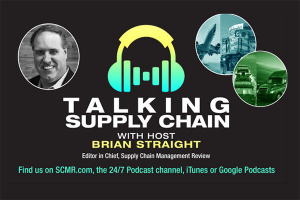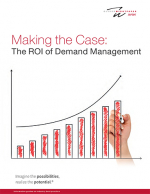Making the Case: The ROI of Demand Management
This white paper shows how to evaluate and communicate the value of improving the credibility of the demand plan, several templates are included to help in quantifying and documenting the return on investment.
A Change of Mindset Is Needed
We have all heard the phrase, “all forecasts are wrong.”
This lore passed along from generation to generation of business leaders, is misleading.
It is one reason many executives believe that their business is too unique and unpredictable to be forecasted.
In the authors’ view, business leaders should not accept forecast inaccuracies as a way of business life.
This belief causes companies to “leave too much money on the table.”
No, nothing is perfect in life. Sales and marketing plans will not be 100 percent accurate. Nor will supply plans or financial plans. Striving to improve their accuracy inevitably drives companies to improve the execution of plans.
When plans are well executed, companies are top performers in their industries.
Here’s the challenge for those who seek to improve the demand planning process: They must demonstrate the return on investment in concrete terms that directly relate to business performance.
This, too, can require a change in mindset. The onus is on the business managers to make a compelling case for change.
What Needs to Improve?
Creating the case for change - and investment - starts with determining what needs to improve.
Many organizations believe that improved forecast accuracy alone is the goal of demand planning initiatives. They spend considerable time and effort on “getting the number right.”
In doing so, they fail to consider what data scientists know: That every statistically derived forecast has an upper and lower confidence range. In the realm of data scientists, forecasts are wrong only if actual demand falls outside the confidence range.
We also know that in the business realm, not everything in the future is controllable.
That is why effective planning involves a combination of:
- Documenting those things that you know and can control
- Forecasting those things that you cannot control, and supporting the numbers and timing of demand projections with clearly documented assumptions
Focusing an improvement initiative solely on improving forecast accuracy is erroneous and shortsighted. By itself, improving forecast accuracy does not add value unless that value can be captured.
Download Making the Case: The ROI of Demand Management
What’s Related




Favorites





